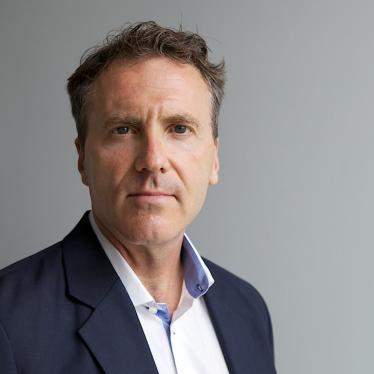The coffins for the condemned in Indonesia’s latest round of executions are finally being put to use on the country’s remote island of Nusa Kambangan. On April 29, Indonesian authorities executed eight death row prisoners — seven of whom were foreign nationals, from Australia, Ghana, Nigeria, and Brazil, and all of whom were convicted of drug smuggling — by firing squad. For the executioners, it was a familiar procedure: Indonesia put six other convicted drug traffickers to death in January, including five foreigners. (Non-Indonesians constitute the majority of prisoners on that country’s death row for drug crimes.)
The executions are a tragedy not just because of moral objections to the death penalty. Despite Jakarta’s defense of the death penalty as “shock therapy” against drug trafficking, the alleged deterrence effect of the death penalty has been repeatedly debunked. Most recently, on March 4, the U.N. assistant secretary-general for human rights, Ivan Šimonović, stated that there was “no evidence that the death penalty deters any crime.” A University of Oxford analysis concluded that capital punishment does not deter “murder to a marginally greater extent than does the threat and application of the supposedly lesser punishment of life imprisonment.” That renders today’s punishments merely cruel and irrevocable.
Indonesia’s current execution spree is no judicial accident. The archipelago nation ended a four-year unofficial moratorium on the use of capital punishment on March 15, 2013, when it executed Adami Wilson, a 48-year-old Malawian national, by firing squad. An Indonesian court had convicted Wilson in 2004 of smuggling 2.2 pounds of heroin into the country. Since then, Indonesia has executed a total of six other people, all of them convicted on drug crimes. President Joko Widodo, who took office in November 2014, has made the death penalty for convicted drug traffickers a signature policy issue.
Widodo’s death penalty policy and his stated refusal to grant clemency, citing national sovereignty, have sparked a diplomatic firestorm. In March, Brazil refused to accept the credentials of Indonesia’s incoming ambassador after the January execution of Brazilian citizen Marco Archer Cardoso for drug trafficking. Brazil also furiously sought clemency for Rodrigo Gularte, who was executed April 29 for drug trafficking, on the grounds that he had paranoid schizophrenia and was “in a very deteriorated psychiatric state.” The Indonesian authorities refused clemency despite extensive diplomatic overtures aimed to spare Cardoso’s life. In a related incident, the Netherlands withdrew its ambassador in Jakarta after the January execution of Dutch citizen Ang Kiem Soei, who died alongside Cardoso.
The diplomatic fallout from Indonesia’s burst of executions has most seriously affected its relationship with its southern neighbor Australia. Canberra’s efforts to obtain clemency for two Australians executed today, Myuran Sukumaran and Andrew Chan, prompted heated exchanges between the two governments. Australia’s Prime Minister Tony Abbott had earlier described how he is “revolted” at the prospect of Sukumaran and Chan’s executions.
Some of the international criticism of Widodo’s death penalty policy comes from perceptions of its hypocrisy. Despite the mass executions today on Nusa Kambangan, Jakarta is devoting considerable resources to prevent the execution of Indonesian citizens overseas. They include Satinah Binti Jumadi Ahmad, an Indonesian domestic worker on death row in Saudi Arabia since 2010 for allegedly robbing and murdering the wife of her Saudi employer. Jakarta sent a formal appeal to Saudi Arabia’s then King Abdullah to pardon Ahmad after paying the entirety of the victim’s family legally recognized “blood debt” — equivalent to $1.9 million in late 2014. Indonesia has applied a combination of diplomatic pressure and cash payments over the past three years to secure commutation of death sentences for 189 Indonesians facing execution overseas — the crimes for those granted clemency include drug trafficking.
Widodo’s death penalty policy also doesn’t withstand international legal scrutiny. Article 6 of the International Covenant on Civil and Political Rights, which Indonesia acceded to in 2006, restricts the use of the death penalty to only “the most serious crimes” which the United Nations has defined as “intentional crimes with lethal or other extremely grave consequences.” The United Nations Human Rights Committee and the U.N. expert on unlawful killings, Christof Heyns, have condemned using the death penalty in drug cases.
All this makes Indonesia’s use of the death penalty for drug-related convictions particularly odious and wrongheaded. But Widodo need not look far afield for inspiration on how to resolve the worsening furor over his death penalty policy. On February 13, Fiji became the 99th country to abolish the death penalty, leaving Indonesia in the ranks of the 58 states, which retain it. For Widodo, it is time to recognize the well-documented failure of the death penalty as a crime deterrent and join the growing number of countries that have abolished capital punishment. Until he does, they’ll need more caskets on Nusa Kambangan.
Phelim Kine is deputy director for the Asia division at Human Rights Watch.









